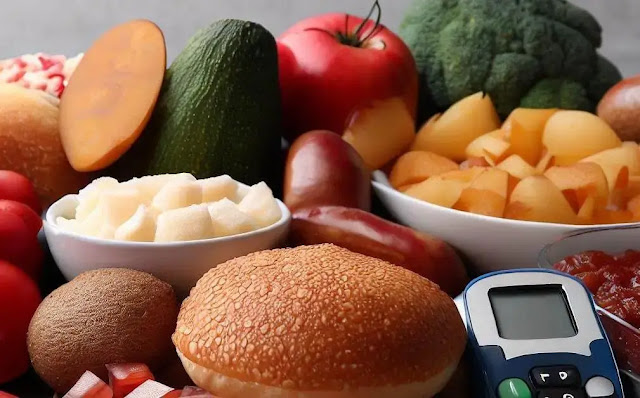Prediabetes foods to eat and avoid - Are you concerned about managing your prediabetes and taking control of your health? Look no further, as we unveil the key to effective prediabetes management: the right foods to eat and avoid. By understanding the impact of your dietary choices, you can make informed decisions that will have a significant impact on your blood sugar levels and overall well-being.
Prediabetes is a state where blood sugar levels are elevated but not in the diabetes range. It is a warning sign that your body is not efficiently processing glucose. By adopting a healthy eating plan, you can better control your blood sugar levels and reduce the risk of developing type 2 diabetes.
What Foods to Avoid with Prediabetes
When it comes to managing prediabetes, it's important to be mindful of the foods you consume. By reducing the consumption of specific food types, you can effectively regulate your blood sugar levels and minimize the likelihood of developing type 2 diabetes. Here are some key foods to avoid if you have prediabetes:
- High-Sugar Foods: Foods that are high in sugar can cause a rapid spike in blood sugar levels, putting stress on your body's insulin response. This includes sugary beverages like soda, fruit juices, energy drinks, and sweetened coffee or tea. It's best to opt for sugar-free alternatives or choose water, unsweetened tea, or herbal infusions.
- Processed and Refined Foods: Processed and refined foods often contain added sugars, unhealthy fats, and fewer nutrients. Examples include white bread, white rice, sugary cereals, processed snacks, and baked goods. These foods tend to have a high glycemic index, meaning they can cause a quick increase in blood sugar levels. Instead, choose whole grains like quinoa, brown rice, and whole wheat bread, which provide more fiber and nutrients.
- Unhealthy Fats: Limit your intake of unhealthy fats, particularly saturated and trans fats. These fats can contribute to insulin resistance and increase the risk of developing type 2 diabetes. Avoid fried foods, fatty cuts of meat, full-fat dairy products, and packaged snacks that are high in unhealthy fats. Instead, choose sources of healthy fats like avocados, olive oil, nuts, and seeds.
- High-Sodium Foods: While sodium itself doesn't directly affect blood sugar levels, it's important to manage your sodium intake, especially if you have other health conditions like high blood pressure. Foods high in sodium can lead to water retention and may contribute to overall health issues. Limit your consumption of processed and packaged foods, canned soups, and fast food, which are often high in sodium.
- Sweetened Condiments and Sauces: Condiments and sauces like ketchup, barbecue sauce, and sweet dressings often contain added sugars. Be cautious when using these and opt for healthier alternatives such as mustard, vinegar, or homemade dressings with natural sweeteners like honey or stevia.
By being mindful of these foods and making healthier choices, you can effectively manage prediabetes and support better blood sugar control. Remember to read food labels, practice portion control, and focus on whole, unprocessed foods to promote overall health and well-being.
Best Foods to Eat for Prediabetes
When it comes to managing prediabetes, making informed choices about the foods you eat can have a significant impact on your blood sugar control and overall health. Here are some key foods to include in your diet if you have prediabetes:
1. High-Fiber Foods: Fiber-rich foods are beneficial for stabilizing blood sugar levels and promoting a feeling of fullness. Incorporate a variety of fruits, vegetables, whole grains, and legumes into your daily meals. Examples include berries, broccoli, quinoa, lentils, and chia seeds. These foods not only provide essential nutrients but also help regulate blood sugar levels and improve digestion.
2. Low-Glycemic Index Foods: Choose foods with a low glycemic index (GI), as they have a slower impact on blood sugar levels. These include whole grains like oats, barley, and brown rice, as well as non-starchy vegetables like leafy greens, cucumbers, and bell peppers. Incorporating these foods into your diet can help prevent spikes in blood sugar levels and promote better glycemic control.
3. Lean Proteins: Include lean sources of protein in your meals, such as skinless poultry, fish, tofu, and legumes. Protein-rich foods help promote satiety, support muscle health, and have a minimal impact on blood sugar levels. They can also aid in weight management, which is important for managing prediabetes.
4. Healthy Fats: Incorporate healthy fats into your diet, as they provide essential nutrients and help you feel satisfied. Opt for foods like avocados, olive oil, nuts, and seeds. These sources of healthy fats can help improve insulin sensitivity and support heart health.
5. Non-Starchy Vegetables: Non-starchy vegetables are low in calories and carbohydrates, making them an excellent choice for prediabetes management. Include a variety of vegetables such as leafy greens, broccoli, cauliflower, peppers, and zucchini. These vegetables provide vitamins, minerals, and antioxidants while being low in sugar and high in fiber.
6. Antioxidant-Rich Foods: Include antioxidant-rich foods in your diet to combat inflammation and promote overall well-being. Berries, dark leafy greens, tomatoes, and colorful vegetables are excellent choices. These foods provide vitamins, minerals, and antioxidants that contribute to better blood sugar control.
7. Portion Control: While choosing the right foods is important, portion control is equally crucial. Be mindful of your serving sizes and aim for balanced meals that include a variety of food groups. This helps maintain a healthy weight and prevents excessive calorie intake.
Remember to consult with a healthcare professional or registered dietitian for personalized dietary advice based on your specific needs and preferences.
Reversing Prediabetes with Diet
The statement emphasizes the importance of incorporating more than just dietary changes when it comes to managing prediabetes effectively. While diet is crucial, it should be complemented by other lifestyle factors to maximize its impact.
Regular physical activity is essential for managing prediabetes because it helps improve insulin sensitivity and promotes weight loss or weight maintenance. Exercise helps the body utilize glucose more efficiently, leading to better blood sugar control. Engaging in activities like brisk walking, jogging, cycling, or strength training for at least 150 minutes per week can have significant benefits.
Stress management is also vital in reversing prediabetes. Chronic stress can contribute to elevated blood sugar levels and insulin resistance. Implementing stress-reduction techniques such as mindfulness meditation, deep breathing exercises, yoga, or engaging in hobbies can help lower stress levels and improve overall well-being.
Additionally, sufficient sleep plays a role in maintaining healthy blood sugar levels. Lack of sleep or poor sleep quality can affect insulin sensitivity and lead to imbalances in hunger-regulating hormones. Strive for 7-9 hours of quality sleep each night to support your body's metabolic processes and enhance your ability to manage prediabetes.
Integrating diet, exercise, stress management, and sufficient sleep is key to reversing prediabetes. These lifestyle factors synergistically improve insulin sensitivity, manage blood sugar, aid weight loss, and reduce the risk of type 2 diabetes. This comprehensive approach enhances outcomes in managing and reversing prediabetes.
Prediabetes Foods to Eat and Avoid - By making informed choices about the foods we eat, we can effectively manage prediabetes and reduce the risk of developing type 2 diabetes. Understanding which foods to include and which to avoid is a crucial step in achieving better blood sugar control and overall health. Combine these dietary changes with a well-rounded lifestyle to support your journey toward reversing prediabetes and maintaining optimal health. Remember, small changes can make a big difference in improving your well-being and preventing the progression to type 2 diabetes.


